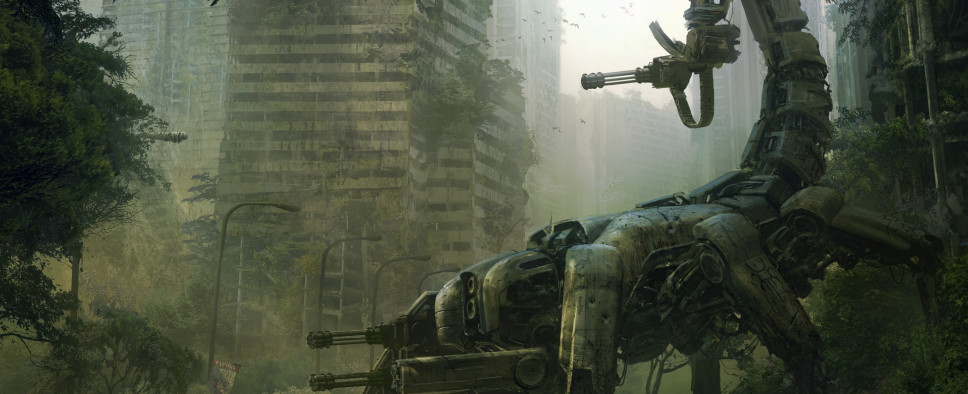Wasteland 2 Review
-
Category: ReviewsHits: 19251

Article Index
Introduction
Wasteland 2 is the sequel to the 1988 post-apocalyptic turn-based RPG Wasteland, and was made possible only thanks to a crowd-funding Kickstarter campaign. While the original title took the menu-driven first-person combat seen in series like The Bard's Tale and mixed it with top-down skill-driven exploration, Wasteland 2 is an isometric turn-based RPG in the mold of Fallout 1 and 2. It's interesting to note that those two titles also happened to be greatly influenced by Wasteland and are generally considered its spiritual successors, making things come full circle with Wasteland 2.
Judging by the success of the Kickstarter campaign for the title, I have no doubt there's a hunger for late 90s-style RPG gameplay and depth. I can safely say that the game delivers in that respect. But is respecting all the promises made during the original Kickstarter campaign enough for Wasteland 2 to be a good game? And can a small developer with a mixed track record like inXile do justice to such an illustrious history?
Plot and Quests
Picking up 15 years after the events of the original Wasteland, which pitted the Desert Rangers against a mad computer AI and its army of robots, Wasteland 2 sees a group of rookies investigating the murder of fellow Desert Ranger Ace, who was inquiring into some mysterious radio signals. The story starts all the way back in Wasteland 1's Arizona, where the player gets to revisit both reimagined locations from the original and completely new locales. Around halfway, though, the action move to the ruins of Los Angeles. While in Arizona the Desert Rangers are an established presence with a powerful base of operations, in California they are newcomers with little to no intel and support, something that is effectively communicated through the game's writing.
Unfortunately, there isn't much to Wasteland 2's main plotline besides its murder mystery hook. It's dull, and stretched to cover a 60+ hour game while it arguably only has material for 10 of those hours, and as a result ends up feeling even worse than it is. To add salt to the injury, it relies too much on plot points from the original 1988 game, plot points that a newcomer will only learn through exposition dumps. Wasteland 2 attempts to both pay homage to the original and also reintroduce and update many of its central concepts, much like Bethesda's Fallout 3. While the quality of the writing is much higher than in Bethesda's title, Wasteland 2 doesn't do as good as a job at walking the line between reboot and sequel.
I've established earlier that the elements related to the central plot make for a small percentage of the total in-game runtime (the game lasted me a good 65 hours), so it's definitely worth mentioning how the rest of the writing fares. Compared to the main plotline, it does much better, thankfully. There are a lot of interesting factions, regional conflicts and off-kilter encounters peppered throughout the game, and even the dullest quests tend to feature at least some witty dialogue and descriptive prose. Even the backer NPCs and shrines are implemented tastefully and feel at home in the game's world. Considering what I've seen in other Kickstarter titles, that's worthy of praise in my book.
In other words, while Wasteland 2's main storyline itself might be boring, it still makes for an excuse as good as any to move from encounter to encounter and locale to locale. Especially on the tail end (when I got to Hollywood, to be precise) the game often reminded me of Fallout 2, and showed a similar commitment to variety and freedom. Quests can range from dialogue-heavy investigations to dungeon crawls through high security bases, and almost never fail to offer a wide array of options. Whether we're talking of full-blown alternative paths, different ways to accomplish the same objectives or, in some cases, even different ways to fail an objective, Wasteland 2 has you covered. InXile pulled off something impressive: they managed to consistently offer choices that feel interesting without being contrived.
And there are, of course, consequences to the player's actions too. Wasteland 2 might not quite go The Witcher 2 route and dramatically bifurcate after its introduction, but it's nonetheless a game that goes out of its way to acknowledge the player's actions. In the most dramatic cases, consequences can have ripple effects throughout an entire location, completely changing its layout and population (something that can happen twice in Arizona). Even minor touches, like seeing the presence of a CNPC or the gender make-up of a party acknowledged, help reinforcing the feeling of player agency over the developer's story. I've heard a few developers condemn canned, non-procedural choices in videogames and, while I understand the position from a pipeline perspective, I think Wasteland 2 is a perfect counterargument.


